The world of avian companionship offers a diverse array of species, each with its unique charm and personality. Whether you’re a seasoned bird enthusiast or a first-time feathered friend adopter, choosing the right bird can be a delightful yet challenging task.
In this guide, we’ll soar through the skies of avian wonder and explore the top 7 best pet bird species renowned for their intelligence, affectionate nature, ease of maintenance, and ability to forge strong bonds with their human companions.
From the playful antics of budgerigars to the majestic beauty of cockatoos, these feathered companions promise not only to fill your home with melodies but also to become cherished members of your family.
Let’s embark on a fascinating journey into the world of pet birds and discover which delightful avian friend might be the perfect fit for your lifestyle and heart.
A Guide to the 7 Best Pet Bird Species
Let’s embark on a journey to explore the seven best pet bird species, each offering distinctive qualities that contribute to a fulfilling and joyful companionship.
This guide will help you make an informed decision about the perfect feathered friend for your lifestyle and preferences.
Budgerigar (Budgie): The Playful Parakeet
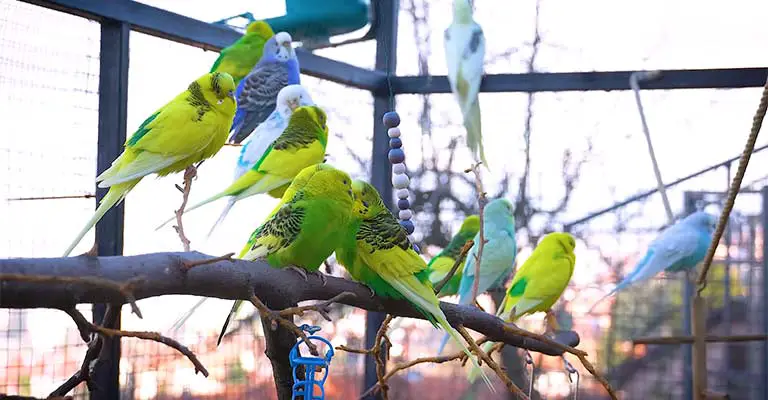
Known for their vibrant colors and playful personalities, budgerigars, commonly known as budgies, are a popular choice among bird enthusiasts. These small parakeets are highly social and enjoy interacting with their human companions.
With proper care, budgies can be trained to mimic words and phrases, adding a delightful touch of conversation to your home.
Cockatiel: Charming and Affectionate
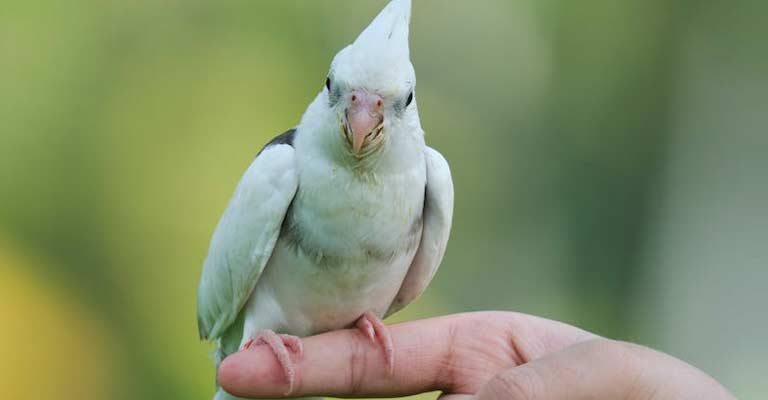
Recognized for their distinctive crest and friendly demeanor, cockatiels are charming companions that thrive on social interaction. These birds are known for their ability to bond closely with their owners and are often described as affectionate and gentle.
Cockatiels also possess a natural talent for whistling tunes, making them delightful musical companions.
Lovebird: Affection in Small Packages
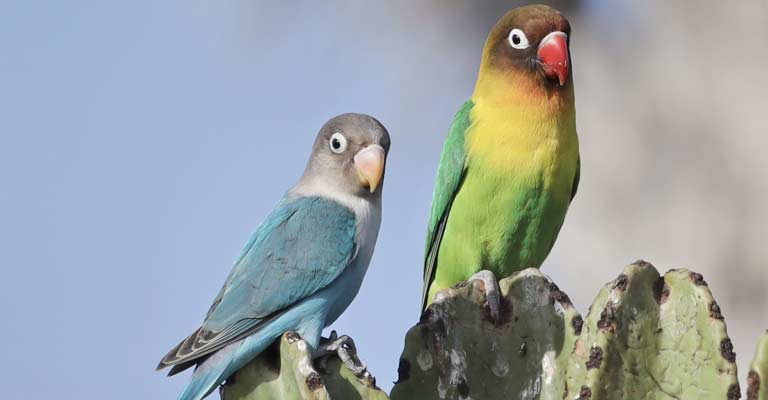
True to their name, lovebirds are renowned for their strong bond with their owners. These small parrots thrive on companionship and are happiest when paired with a mate or human friend.
Lovebirds exhibit playful behavior and can be trained to perform tricks, making them an engaging and affectionate addition to any household.
African Grey Parrot: The Einstein of the Avian World
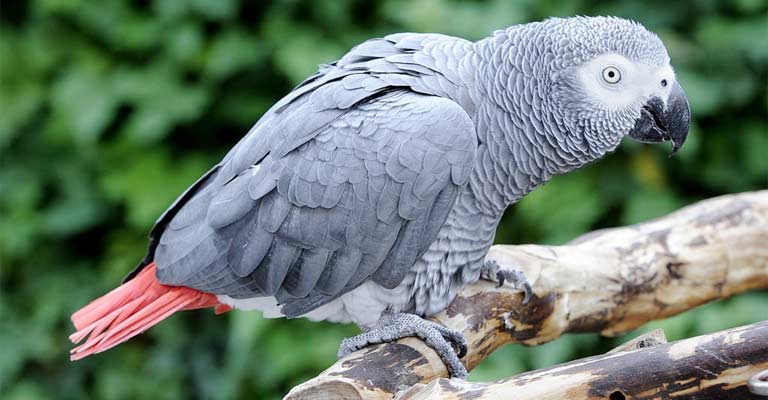
Regarded as one of the most intelligent bird species, the African Grey Parrot is a remarkable feathered companion. Known for their exceptional talking ability and problem-solving skills, these parrots form deep bonds with their owners.
While their intelligence requires mental stimulation, the rewards of a relationship with an African Grey are unparalleled.
Cockatoo: Majestic Beauty with a Loving Heart
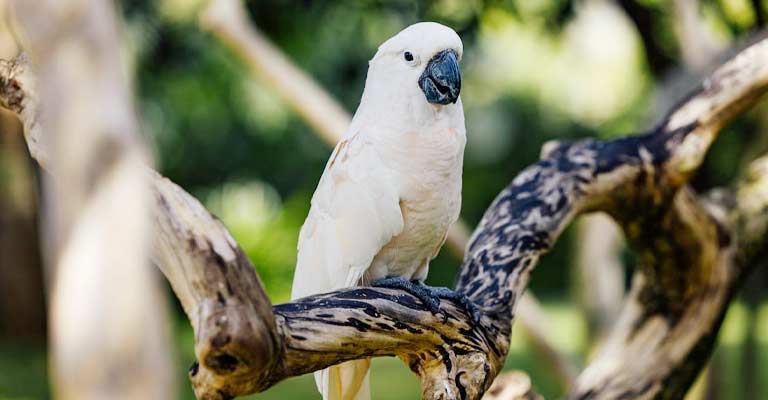
Cockatoos are known for their striking appearance and loving nature. These majestic birds form strong emotional bonds with their owners and thrive on affectionate interaction.
However, potential bird owners should be aware of the commitment involved in caring for a cockatoo, as these sociable birds require significant attention and mental stimulation.
Conure: Energetic and Playful Companions
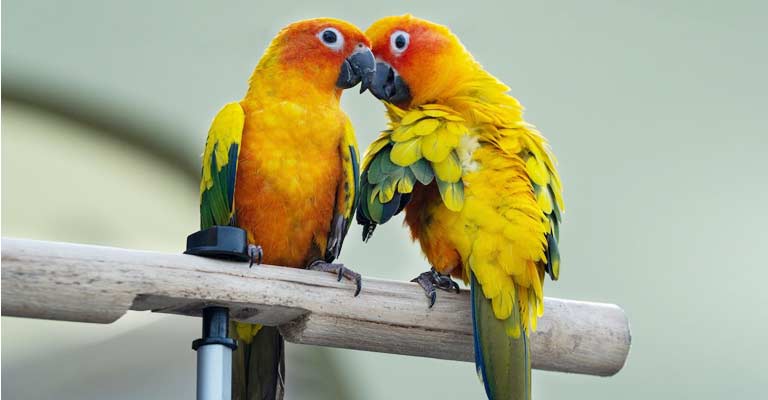
Conures are a diverse group of small to medium-sized parrots known for their vibrant colors and energetic personalities. With a playful demeanor and a penchant for acrobatics, conures bring a lively spirit to any home.
Their sociable nature makes them well-suited for families and individuals who can dedicate time to their energetic antics.
Bourke’s Parakeet: Gentle Beauty
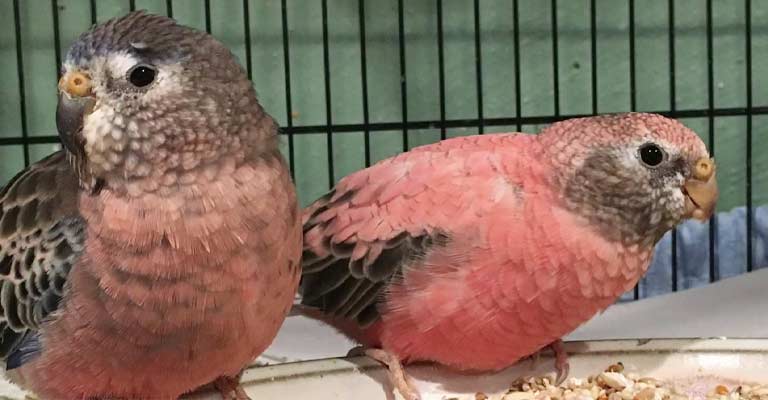
Bourke’s Parakeets, often overshadowed by more popular species, are gentle and beautiful birds that make wonderful companions.
With their subtle pastel colors and calm temperament, Bourke’s Parakeets are ideal for those seeking a more laid-back feathered friend. They may not be as vocal as some other parrot species, but their sweet disposition and easygoing nature make them a joy to have around.
What Pet Birds Live the Longest?
The lifespan of a pet bird is a crucial factor, influencing the depth and duration of the bond shared with its human caretaker. Among the diverse spectrum of pet bird species, some stand out for their remarkable ability to endure the sands of time.
In this exploration, we delve into the world of avian longevity to discover which pet bird claims the title of the longest-lived feathered friend.
The Methuselahs of the Avian Kingdom: Cockatoos
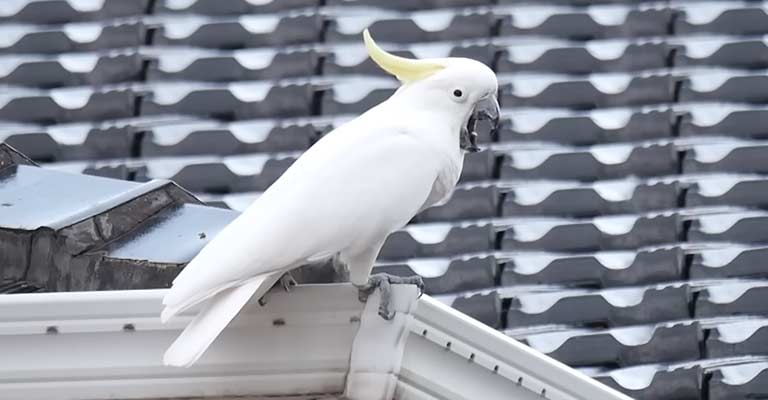
When it comes to longevity in the realm of pet birds, Cockatoos, particularly the Sulphur-crested Cockatoo (Cacatua galerita), take center stage.
Known for their striking appearance, social nature, and vibrant personalities, these majestic birds boast an impressive lifespan.
In favorable conditions with proper care, Sulphur-crested Cockatoos can live well into their 70s and, in some cases, even surpass the century mark.
The key to their exceptional longevity lies in the combination of genetic factors, a nutrient-rich diet, and attentive care from their human companions.
Sulfur-crested Cockatoos, like other Cockatoo species, form strong bonds with their owners, emphasizing the importance of social interaction and mental stimulation for their overall well-being.
African Greys: The Wise Elders of the Parrot World
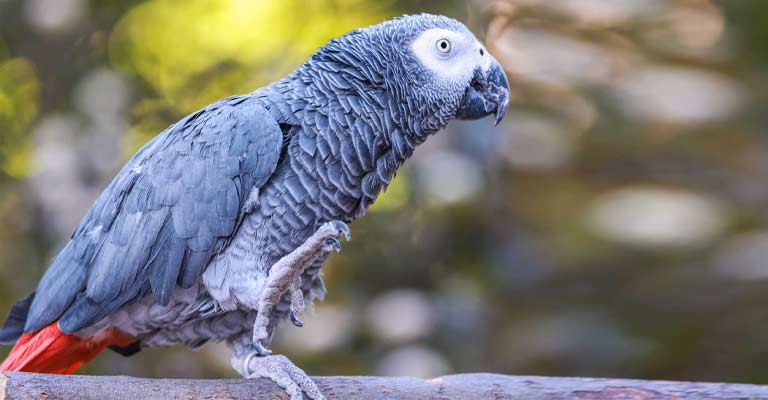
African Grey Parrots (Psittacus erithacus) are renowned not only for their unparalleled intelligence and remarkable talking ability but also for their impressive lifespan.
These wise elders of the parrot world can live well into their 50s and 60s, making them one of the longest-lived parrot species.
With their captivating ability to mimic human speech and their knack for problem-solving, African Greys have formed deep bonds with their human caretakers over the decades.
Proper nutrition, regular veterinary check-ups, and a stimulating environment are crucial components in ensuring the well-being and longevity of African Grey Parrots. The emotional bonds they form with their owners contribute significantly to their overall health and happiness.
The Enigmatic Amazon Parrots
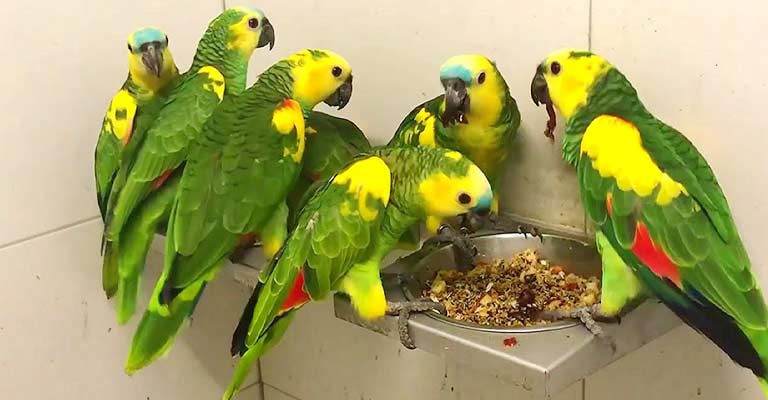
Amazon Parrots, known for their vibrant plumage and lively personalities, also rank among the long-lived pet birds.
Species such as the Yellow-headed Amazon (Amazona oratrix) and the Blue-fronted Amazon (Amazona aestiva) have been known to live well into their 60s and 70s.
These enigmatic parrots thrive on social interaction, mental stimulation, and a varied diet, factors that contribute to their impressive lifespan.
The Lesser-known Longevity: Budgerigars and Cockatiels
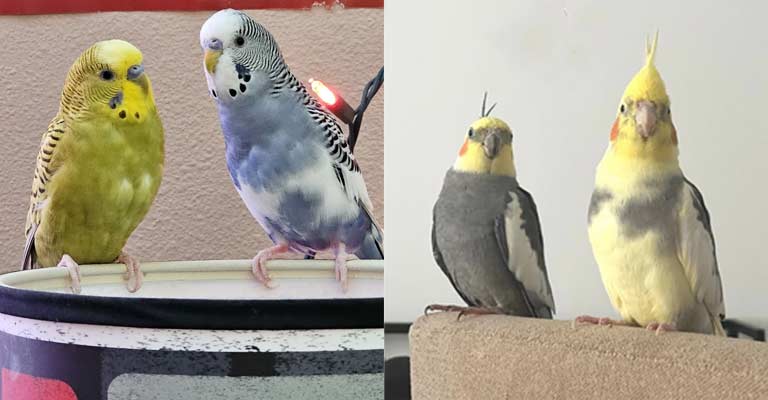
While large parrot species often take the spotlight in discussions about avian longevity, some smaller companions also boast remarkable lifespans.
Budgerigars, or budgies, and Cockatiels, popular choices for those seeking smaller feathered friends, can live up to 15 to 20 years with proper care.
Despite their diminutive size, these birds bring joy and companionship to households for a significant portion of their owners’ lives.
How Do I Choose the Right Pet Bird for Me?
Choosing the right pet bird requires careful consideration of various factors to ensure compatibility with your lifestyle and preferences. Here are key aspects to ponder when making this decision.
Size, Lifespan, and Space
Consider the size of the bird and the space available in your home. Larger birds like macaws or cockatoos need more room to move and play, while smaller birds like budgies or finches are more suitable for smaller living spaces.
Different bird species have varying lifespans. Parrots, for instance, can live for several decades. Be prepared for the long-term commitment and the potential changes in your lifestyle over the years.
Noise Level and Temperament
Birds can be noisy, especially certain species like cockatoos and conures. Evaluate your tolerance for noise and choose a bird whose vocalizations align with your preferences and living situation.
Research the temperament of different bird species. Some birds are more independent, while others thrive on social interaction. Consider how much time you can dedicate to bonding and playing with your pet.
Maintenance Requirements
Birds, like any pets, require proper care. Consider the time and effort you can invest in grooming, cleaning, and maintaining their living environment. Some birds may need more attention and care than others.
Be mindful of potential allergies to feathers or bird dander. Spend time around birds of the species you are interested in to ensure you don’t have adverse reactions.
Diet and Nutrition
Research the dietary needs of the bird species you are considering. Some birds have specific nutritional requirements, and you should be prepared to provide a well-balanced diet.
Certain bird species are known for their ability to mimic sounds and even learn tricks. Consider the level of training and interaction you desire in a pet bird.
Initial and Ongoing Costs
Factor in the costs associated with acquiring a bird, including the purchase price, cage, toys, and ongoing expenses like food and veterinary care. Different species have varying cost implications.
Availability and Legal Considerations
Ensure that the bird species you’re interested in is legal to own in your area. Some species may have restrictions or require special permits.
By carefully evaluating these factors, you can make an informed decision that aligns with your lifestyle, ensuring a positive and fulfilling relationship with your feathered companion.
FAQs
What are the basic dietary needs of pet birds?
Pet birds require a well-balanced diet consisting of high-quality bird pellets, fresh fruits, and vegetables. Some species may also benefit from seeds and nuts. Ensure access to clean water, and consult with a veterinarian for species-specific nutritional guidelines.
How do I train my pet bird to talk?
Training a pet bird to talk involves consistent repetition, positive reinforcement, and patience. Start with simple words or phrases, repeat them regularly, and reward your bird with treats or praise. Not all bird species are vocal, so be realistic about expectations.
What is the lifespan of commonly kept pet bird species?
The lifespan of pet birds varies by species. Smaller birds like budgies and cockatiels may live 10-15 years, while larger parrots such as African Greys and Cockatoos can have lifespans of 50 years or more.
How can I create an enriching environment for my pet bird?
Provide a spacious cage, engaging toys, and opportunities for mental stimulation. Rotate toys regularly to prevent boredom, and allow for out-of-cage time for exercise and social interaction. Mimic natural sunlight exposure, and ensure a safe, bird-friendly space.
What are common signs of illness in pet birds?
Watch for changes in behavior, such as lethargy, changes in eating or drinking habits, excessive preening, or difficulty breathing.
Be attentive to changes in droppings, as abnormalities may indicate health issues. Regular veterinary check-ups are crucial for early detection.
Conclusion
The world of pet birds is a vibrant tapestry of colors, personalities, and enchanting melodies. Each of the seven best pet bird species has its unique characteristics that can bring joy, companionship, and a touch of nature.
Whether you opt for the playful and social budgerigar, the intelligent and talkative African Grey Parrot, or the affectionate and charming Cockatiel, the bond formed with these feathered companions is sure to be a rewarding and heartwarming experience.
Remember, successful bird ownership involves understanding the specific needs of your chosen species, providing proper care, and dedicating time to nurture the relationship.
As you embark on this avian adventure, may your home be filled with the delightful chirps, captivating antics, and enduring love of your newfound feathered friend.
Embrace the joy of avian companionship and cherish the unique qualities that make each pet bird a wonderful addition to your life.